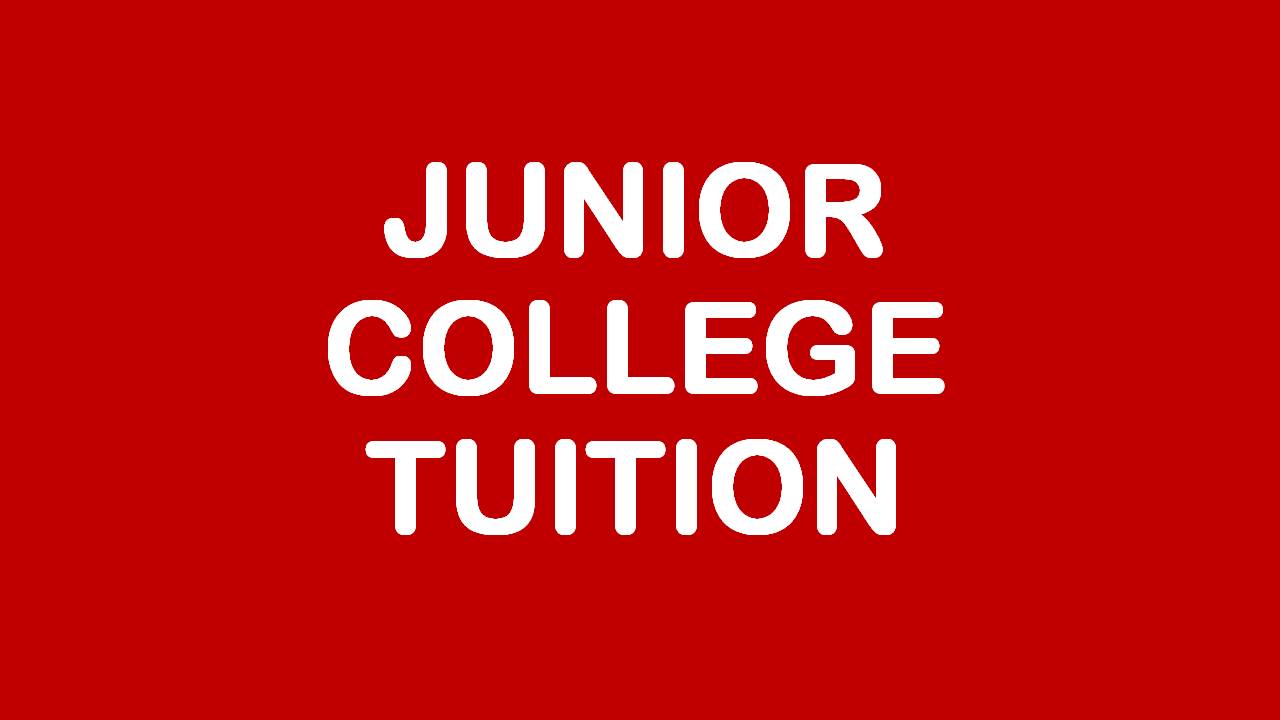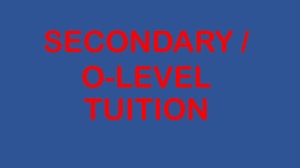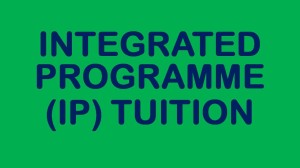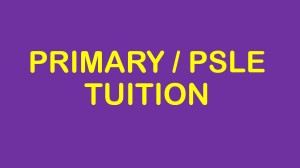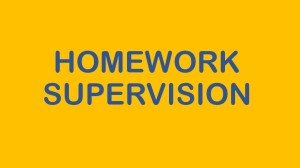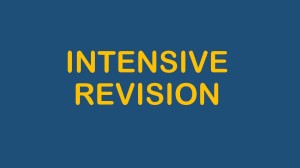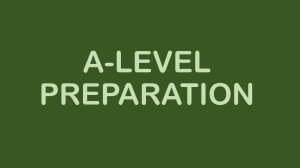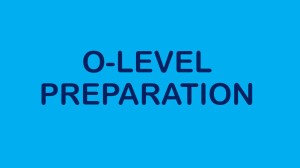Ok la, this year I shall break tradition by posting whichever results my last year’s students inform me of. One has just come in. I will update throughout the week as I get more results (sometimes students are just forgetful).
Physics: Luke, A2 (from b4 avg, failed in sec 3 (his mum just told me), St Pat’s sch, Farkhanda, B3 (from fail avg)
Chemistry (under Mr Anthony): Charmaine A2; Bandar A2; Luke, B3; Farkhanda, B4. (from fail avg)
Science: Ben, B3.
A. Math: Ameerul, C5 (from fail avg, Yuhua sec); Loges, B3 (from C5-C6 avg, ACS(I)); Ravin, B3 (from fail avg); Rahim, B3 (from C5-C6 avg); Jin Yong, A1 (from B4 avg); Farkhanda, B3 (from fail avg).
Math: Ali Zul, B3 (from C5-C6 avg); Colin, B3 (from C5)
This year, I shall also break tradition in another way, by posting a testimonial from a student, Ravin. Below is the exact words that he smsed to me at 10.06 am on 11 Jan 2013:
“My plan is to do engineering. More to aerospace or aeronautical. I will put my first few choices as that the rest I’m still thinking. Last choice will be MI. Yes Mr Ilyasa, a lot of improvement. I did not put in a lot of effort for A-math and my sci in secondary school. In fact I was failing but I’m happy to see that I got Bs and A for my math and sci but it’s really disappointing to see a 6 for EL. Thank you for your help Mr Ilyasa. You make lesson so fun and you taught me a lot. : ) “
Well, he taught me a lot too.
Waiting for more updates from more students …..
Ilyasa, M.Ed., PGDE, full-time tutor, ex-sch teacher (h/p: 97860411)
Effective JC H2 / H1 Economics Model Essays
On Monday, a Mrs Lee came to collect the GP Resource and Practice Package that she ordered. I didn’t realise she had come to my place before, until she mentioned that her daughter’s econs essay marks had improved significantly (from ard 5 to ard 19 marks now)after reading and studying the Economics Essay Revision Package that she had bought from me earlier. If you dont believe this, you can call Mrs Lee directly if she agrees to be ‘interviewed’. However, her daughter’s case study marks didn’t improve so I’m looking into it to understand why.
Well, I wasn’t surprised at all, as the same set of essays had been used by my Math student, Emily, to get an A at her Econs a year earlier (you can verify it with her if she agrees; she’s now studying in the US after getting four As in her H2 subjects). For those of you econs students who are too busy to attend econs tuition, and you can self-study, I would encourage you to purchase this Econs revision package that I had compiled. The essays may not be perfect (you may even add to them), but are far better than those written by average Econs students.
Alternatively, if you live near Bukti Batok, you can come to my place for econs tuition, which will be taught by Mr Jay Lim, an ex-banker in his 50’s, who has wide experience in practising finance and economics, and supported by myself and the materials that I have compiled. Although not an ex-JC teacher, Mr Lim is US-trained, and very comfortable with case studies and very familiar with the world of economics, finance, international trade and banking. He is also currently tutoring an IB student in Business & Management.
For enquiries, just give me a call or sms, to 97860411.
Rgds,
Ilyasa, M.Ed, PGDE, ex-sch teacher
Reflections on Sec 4 Physics class (9/12/12) …
Just like in the Sec 4 A Math class ytdy, we revised Sec 3 Physics instead, but I will move on to Electricity in Jan 2013. The two students in this class are from Nan Hua and NJC, in case you want to know, although I find it strange that parents ask me which schs the students come from (I’ll write another article soon – ‘The kinds of parents who call me’). C’mon, if you are weak in Physics, you are weak in Physics, even if you are a graduate from Harvard. Apparently, parents are concerned about the syllabi. However, let me tell you something – even two IP schs or two non-IP schs can be at different topics in Physics at the same time. As for level of difficulty, Sec 4 Physics is Sec 4 Physics; no IP sch is going to teach Quantum Physics at Sec 4 ok, except, maybe, NUS High. In fact, some O-level sch prelim papers are harder than those of the IP schools.
We covered Kinematics and Moments ytdy, and as usual, students have misconceptions about free-falling objects, free body diagrams, kinematics graphs and what constitutes ‘perpendicular distance’ and ‘line of action of the force’ in the calculation of moments. Since they were new students, I also listed the 6 ways that examiners make physics questions difficult, and these have nothing to do with physics! (I will post an article abt this some time soon). Every year, I find that students THINK that they know Kinematics and Dynamics, but they can’t answer some conceptual questions I ask. Even some JC students have actually not understood their Sec 3 Physics!
Related post:
Reflections on Sec 4 A. Math class (9/12/2012) …
Two new students joined us ytdy, one from Monfort Sec and one from SCGS. Apparently, I tutored the latter’s cousin a few yrs ago, all the way from Sec 2 to JC2 in Math and Physics, and who is now a first year undergrad; just learnt that he scored 2 A’s and 2 B’s in his A-levels (he might have told me about it); anyway, that proves my point, that you can come from a ‘neighbourhood’ sec sch and then go to a ‘low-ranked’ JC and still do well at the A-Levels. Contrast this with the two ex-IP students that I helped this year to re-take their A-Levels. So students out there pls wake up; no one owes you good grades.
The three tutees agreed to revise some sec 3 topics instead of me teaching them a Sec 4 topic. So for this class (Sat 2.15 to 3.45pm), I will only start teaching Differentiation in Jan 2013. So ydty two of them covered Indices, Surds and Log while the remaining one wanted to revise Trigonometry. Every time, I find joy in proving to students that Logarithms is a VERY EASY topic. Once you understand what a logarithm is, everything about it becomes very easy (I’ve posted another article on Log; pls do a search on it, under A Math study tips I think).
Trigo is a much harder topic, especially the proving of some Trigonometric Identities. However, there are heuristics to use in solving the latter, and these techniques work 95% of the time. I like ‘proving’ qns because there is no answer to find, and students normally dislike such qns precisely because there is no answer to find. But I can’t blame them; imagine spending 6 yrs of your life in pri sch only learning how to find answers, so students become obsessed with finding a numerical answer, and eventually get defeated by qns that ask them to prove something already known.
Related pages:
List of Top (Academically Very Good) Secondary Schools in Singapore …
This is just my informed opinion.
[I] = Independent; [A] = Autonomous; [SAP] = Special Assistance Plan; [IP] = Integrated Programme.
NAME OF SCHOOL (GCE O-LEVEL BAND IN 2010) [Type of School]
Anderson Sec (1)[A]
Anglican High (1)[A, SAP]
Anglo-Chinese (Independent) (NA)[I, IP]
Bukit Panjang Government High (1)[A]
Catholic High (1)[A, SAP]
Cedar Girls’ Sec (1)[A, IP]
CHIJ Sec (Toa Payoh) (2)[A]
CHIJ St. Nicholas Girls’ (1)[A, SAP]
Chung Cheng High (Main) (2)[A, SAP]
Chung Cheng High (Yishun) (3)
Commonwealth Sec (3)[A]
Crescent Girls’ (1)[A]
Dunman High (NA)[A, SAP, IP]
Hwa Chong Institution (NA)[I, SAP, IP]
Maris Stella High (3)[A, SAP]
Methodist Girls’ (1) [I]
Nan Chiau High (2)[SAP]
Nan Hua High (2)[A, SAP]
Nanyang Girls’ High (NA)[I, SAP, IP]
National Junior College (NA)[IP]
Raffles Girls’ Sec (NA)[I, IP]
Raffles Institution (NA)[I, IP]
River Valley High (NA)[A, SAP, IP]
Singapore Chinese Girls’ (1)[I]
St. Joseph’s Institution (2)[I]
Swiss Cottage Sec (3)
Tanjong Katong Girls’ (2)[A]
Tanjong Katong Sec (2)[A]
Temasek Sec (3)[A]
Victoria (1)[A, IP]
Xinmin Sec (2)[A]
Zhonghua Sec (2)[A]
*To find out important details of a particular school, such as the median PSLE aggregate of it’s sec 1 cohort, click on School Information Service.
If you are already in these schools, don’t be arrogant, don’t be complacent; you still need to study hard and intelligently. Good luck. : )
Related articles/posts
(a) Beware the critical years in math education in Singapore.
(b) Not all IP students make it ….
(c) Sec 1 (2013) Algebra Headstart Programme in Nov/Dec for post-PSLE students
(d) List of ‘Top’ Secondary Schools in Singapore by median PSLE score (2011) of their Sec 1 cohort
Good Luck,
Mr Ilyasa, M.Ed., PGDE, full-time tutor (h/p: 97860411)
_______________________________________
TUITION CLASSES:
_______________________________________________________________
EDUCATIONAL SERVICES:
______________________________________________________________
By EX-MOE TEACHERS & EXPERIENCED TUTORS
@ BLK 644, BUKIT BATOK CENTRAL, #01-68. S(650644).
CALL 65694897 OR SMS 98530744 OR 97860411.
A different kind of school …
I have been doing relief teaching this week in a school where every student has a macbook and their textbooks are all stored in their macbooks. So they only bring one ultra light laptop to school instead of a stack of textbooks. They answer the e-book questions in their e-journals and draw graphs using software. At the same time, they are able to access the internet for more info to do their classroom projects. Every morning, because i’m a relief teacher, i have to borrow a macbook from the IT dept to take class attendance and to show science videos on the internet. I don’t go from classroom to classroom to teach Science; I sit in a dedicated Science lab surrounded by scientific apparatus and prepare for students to arrive. And these students are not college students; they are just 12 to 13 year-olds.
Wouldn’t it be great if every school in Singapore is like this, where teachers have dedicated subject rooms and technology is heavily utilised, from primary schools to junior colleges? All schools, instead of just some elite independent schools? Students sit around me instead of facing me. Students sit in groups facing one another instead of sitting individually facing the whiteboard. All classrooms are air-conditioned for comfort and the class sizes are between 20 to 24 (it seems that the school believes that every child is Gifted).
_______________________________________
TUITION CLASSES:
_______________________________________________________________
EDUCATIONAL SERVICES:
______________________________________________________________
By EX-MOE TEACHERS & EXPERIENCED TUTORS
@ BLK 644, BUKIT BATOK CENTRAL, #01-68. S(650644).
CALL 65694897 OR SMS 98530744 OR 97860411.
Beware the critical years in math education …
Be aware that there are Mathematics gaps that need to be handled with care:
The following is derived from my eight years of teaching mathematics from
Primary 1 level to JC 2.
1st Gap – From Lower Primary to Upper Primary:
Somewhere in Primary Three problem sums that require the drawing of simple
models begin to appear and in some schools, this happens in P2 and even P1.
However, these problems tend to be simple enough so as not to cause problems for
students who don’t draw models. Generally, parents report their children doing
badly and losing interest in math in P4. This is because in P4, complex problem
sums begin to appear. It also coincides with the appearance of Decimals. Thus
students who have not mastered Fractions as well as simple models by the end of
P3 will find P4 a tough and demoralising year, with some probably staying away
from Math for the rest of their lives. However, in P4, Section C (problem sums)
still only take up about 20% of the marks, so pupils will still survive and
scoring above 75% is not a problem for the hardworking student who is not
careless.
However, this ecstasy is short-lived. In P5, Ratio, Average and
Percentages start to appear, on top of decimals and fractions, and only the
well-taught and discerning student will understand that they are all roughly the
same thing in different forms. To add to the agony, Section C in P5 takes up
about 45% of the total marks! It is a very big jump from P4; students can no
longer afford to just concentrate on their short questions in order to score a
Band 1. P5 is the year that separates the men from the boys (or the women from
the girls). In P6 or PSLE, Section C’s weightage is increased to about 55%,
wiping out all remaining students who have not mastered complex problem sums and
non-routine questions. That is NOT the bad news yet. The worse news is, the
joy of quite a number of students who scored A-star in math at PSLE is also
short-lived (I have encountered quite a number of students doing badly in
secondary math even though they scored A-stars or A’s at PSLE).
2nd Gap – From P6 to Sec 1:
Why is it that some students can score A-stars or A’s at the PSLE yet become average or even failures in math at the secondary level? The answer lies in two words – Algebra and presentation. It’s unfortunate that even at the upper primary level, students are not taught to form and solve equations using algebra, and they are also not taught how to present their answers in logical and coherent mathematical statements. Thus I find that many Sec 1 students provide math workings that will not earn full marks by ‘O’ level standards, and these habits are hard to change. Inability to use algebra properly also means inability to master important fundamentals such as algebraic expansion, factorisation and manipulation, resulting in poor performance at the upper secondary and JC levels.
Whenever I ask an upper secondary or JC student to state the main reason why he thinks he’s doing badly in math, the reason given is almost always that he had difficulty handling algebraic concepts and formulae while in Sec 1 and Sec 2. Thus parents and students need to comprehend fully the importance of mastering algebra in the lower secondary years.
3rd Gap – From Sec 2 to Sec 3:
Even students who perform well in Sec 1 and Sec 2 may suddenly suffer a drop in their math performance by the middle of Sec 3. This is largely due to the full impact of Additional Math and the pure sciences taking place and finally being felt by students around that time. A. Math can be a shock to some students who are not used to algebra-intensive questions with solutions that are one-page long. Trigonometry in A. Math is also substantially more difficult to grasp than it’s counterpart in elementary Math.
4th Gap – From Sec 4 to JC 1:
H2 Math is more shocking to new JC students than A. Math is to new Sec 3 students. H2 Math is significantly more difficult than A. Math and from my experience, students who do not get an A1 for A. Math will have a hard time even in completing their JC tutorial worksheets. This is because on top of having to write out solutions that are often more than one page long, students have to familiarise themselves with a new graphical calculator. Many topics in H2 Math are also completely new to students, such as Complex Numbers, Series and Sequences and Probability Distributions, just to name a few. H2 Math is also difficult for most students because some parts of its topics are taken from the former subject Further Math, which was meant for only top students in Math. Thus it is not surprising to find many students failing in Math tests in their first year in junior college. From my experience, two topics in H2 Math that most JC students complain about are Complex Numbers and Vectors. This is largely because these topics speak their own language.
My main point is – Concerned parents must monitor their children’s
mathematical development extra closely when the kids go through the above
stages.
Good luck.
Best Regards,
Ilyasa
Related Links:
FREE SEC 1 MATH TUITION AT SINGAPORE LEARNER!
Integrated Programme subject combination and promotion criteria
What happens at the end of Y4 IP?
Tips on how to Excel in Integrated Programme
What to do if you are failing in Integrated Programme?
EDUCATIONAL SERVICES:
______________________________________________________________
By EX-MOE TEACHERS & EXPERIENCED TUTORS
@ BLK 644, BUKIT BATOK CENTRAL, #01-68. S(650644).
CALL 65694897 OR SMS 98530744 OR 97860411.
What subject combination to choose for Sec 3 or O-levels …
Based on my experience as a secondary school teacher, if you are now in Sec 2, here are the subjects I think you should choose for Sec 3 which will ultimately become your all-important O-Level subjects:
Other than (1) English, (2) Mother Tongue and (3) Mathematics, your other subjects should be:
(4) Additional Mathematics (A. Math is important for all higher level courses in Business and Science, including Engineering, and it will help you tremendously in JC Math (H1 or H2), as well as in math modules in the Polytechnics or ITE. Even a fail in A. Math is given some recognition for the purpose of application to some poly courses. Many university courses which do not require a pass in A-Level Math still require a pass in O-Level Additional Math. And NEVER, EVER drop A. Math even if your school asks you to; schools only care about their overall percentage passes and image, not about you. A school cannot force you to drop A. Math)
(5) Pure Chemistry or Combined Science with Chemistry (Chemistry is the central science. Without any O-level Chemistry, most likely you will not be allowed to do Chemistry in JC which in turn will bar you from taking any unversity courses related to the life sciences, such as medicine, dentistry, pharmacy etc.)
(6) Whether you take Geography, History or Literature depends on your inclinations. If you are unsure, take History if you intend to go to a JC for it will train you in argumentative or discursive essay writing skills necessary for the General Paper (I took history last time, got an A1 for it and my GP grades were always B3 and above. If you intend to do Law, getting good grades in History and GP helps)
(7) If you want to be in Engineering or Aviation, you must take Physics. If you intend to work in the life or ecological sciences field, you should do Biology.
(8)(added on 21/10/2016) You may also need to consider your overall workload. By taking “triple science”, you may end up taking 8 or 9 subjects when you only need 6 to go to a JC and only 5 to go to a polytechnic. Bear in mind that you may also be more involved in CCA as Sec 3 students will soon become CCA leaders. For example, even though my daughter can do “triple science”, but because she is in the Art Elective Programme and also actively involved in the school band, she has decided to opt for double science instead and I’m happy for her.
Please be very serious in choosing the above subjects because they may actually determine your career in Singapore.
If you need more info on the above, or about choosing JCs or JC subjects, or simply on how to effectively study Math, Physics or Chemistry, do drop by my centre in Bt Batok for a frank, no-obligations discussion. But do msg me (hp no: 9786 0411) first as I may have classes or meetings. Whether you are a parent or a student, if you are serious about education, I look forward to seeing you.
Rgds,
Ilyas
If you need academic help, kindly click on any of the following programs:
REVISION AND RE-LEARNING (NOV-DEC)
HEAD START (NOV-DEC)
STANDARD WEEKLY TUITION (JAN-OCT)
INDIVIDUAL TUITION
SCIENCE PRACTICAL TRAINING
For enquiries on the above, you may contact the tutor directly at 97860411.
SCIENCE PRACTICAL TRAINING:
O-LEVEL PHYSICS PRACTICAL
O-LEVEL CHEMISTRY PRACTICAL
O-LEVEL BIOLOGY PRACTICAL
O-LEVEL SCIENCE (PHYSICS) PRACTICAL
O-LEVEL SCIENCE (CHEMISTRY) PRACTICAL
O-LEVEL SCIENCE (BIOLOGY) PRACTICAL
Click on any related post below:
Beware the critical years in math education in Singapore.
TUITION FOR INTEGRATED PROGRAMME (IP) STUDENTS
TUITION CLASSES:
EDUCATIONAL SERVICES:
By EX-MOE TEACHERS & EXPERIENCED TUTORS
@ BLK 644, BUKIT BATOK CENTRAL, #01-68. S(650644).
CALL 65694897 OR SMS 98530744 OR 97860411.
A Tribute To My Teachers …
I suppose there’s no better day than today to pay a tribute to a great group of teachers – my ex-lecturers and tutors at the NIE who patiently guided me through my two-and-half-year Master of Education course. Because of them, I actually changed the way I look at my own students and the way I impart knowledge and skills to them. These inspiring teachers are (not in order of awesomeness):
(1) Dr Theresa Alviar-Martin (Curriculum Theory);
(2) Assoc Prof Deng Zongyi (Critical Perspectives);
(3) Ms Mardiana Abu Bakar (Critical Perspectives);
(4) Ms Betsy Lim (Crafting The Curriculum);
(5) Ms Fong Lay Lean (Crafting The Curriculum);
(6) Dr Christina Lim-Ratnam (Curriculum Implementation);
(7) Dr Fang Yanping (Teacher Knowledge and Teacher Learning);
(8) Mr John Yeo (Teacher Knowledge and Teacher Learning);
(9) Dr Koh Kim Hong (Mastering The Art of Authentic Assessments);
(10) Prof Lam Chi Chung (Programme and Curriculum Evaluation);
(11) Assoc Prof Katerine Bielaczyc (Critical Inquiry).
In my line, I don’t need a Ph.D. But if there’s a good reason to do one, then it has to be the chance to work with them again.
Happy Teachers’ Day.
Sincerely from,
Happy Teachers’ Day!
I would like to wish all Teachers (including myself), a Happy Teachers’ Day. May we continue to facilitate wonderment and awe in our students about their experiences so that they will be ready to think for themselves when the time comes.
Here I would like to print a quote (from Maxine Greene) that I learnt in my Master of Education course at the NIE:
“We who are teachers would have to accommodate ourselves to lives as clerks or functionaries if we did not have in mind a quest for a better state of things for those we teach and for the world we all share. It is simply not enough for us to reproduce the way things are.” (Greene, 1995, p.1)
Rgds,
References:
Greene, M. (1995). Releasing the Imagination: Essays on Education, the Arts, and Social Change. San Francisco: Jossey-Bass Publishers.
